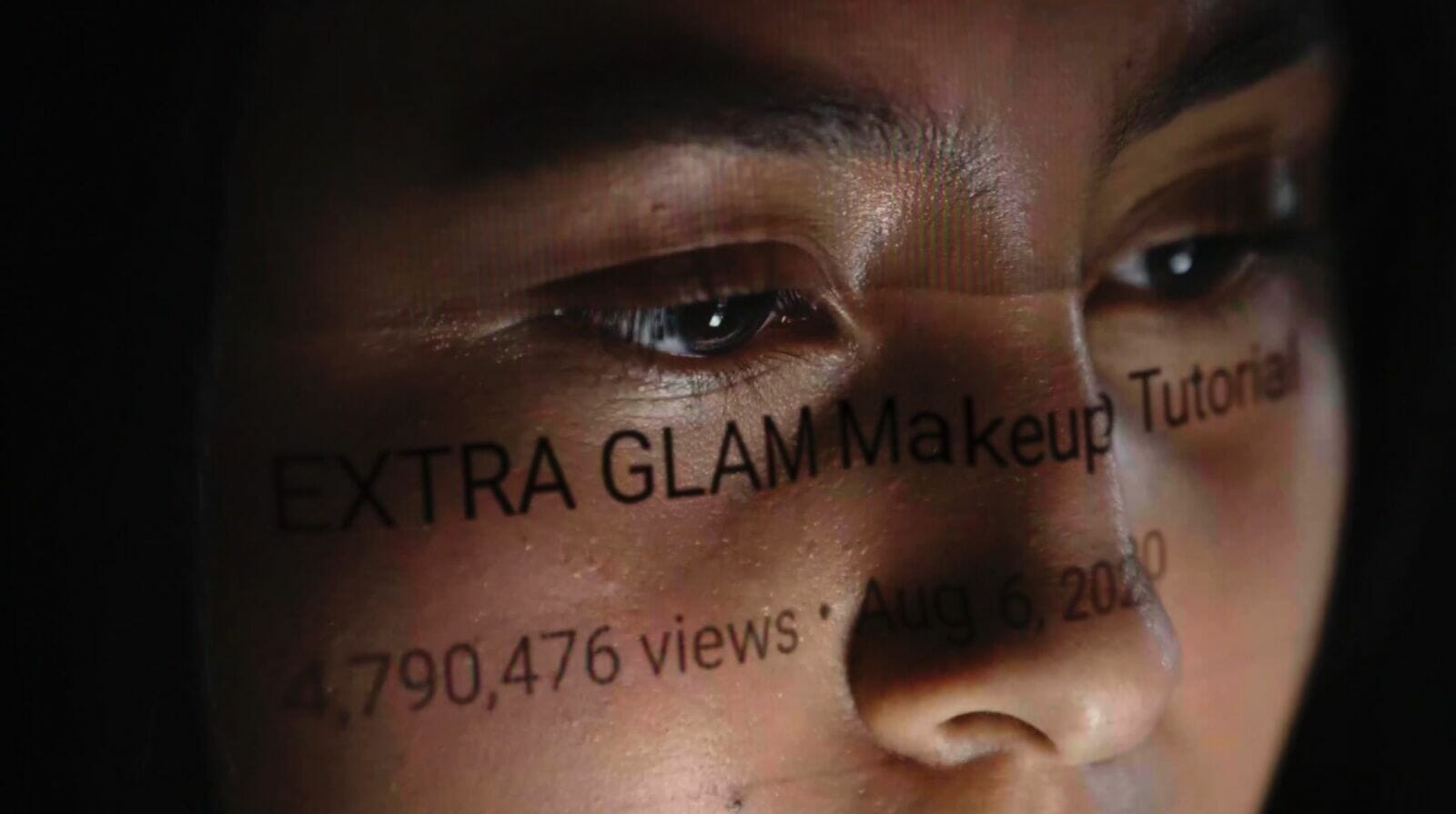Alex Winter, who Arizonans may know as Bill S. Preston, Esq. from the locally filmed Bill & Ted, has spent the last decade-plus as an accomplished documentarian, covering subjects from Frank Zappa to child actors to bitcoin and Napster. His latest doc, maintaining his focus on major players in tech, is The YouTube Effect, a comprehensive chronicle of the platform’s thrills and ills. I recently spoke with him about the project, which is now streaming on multiple VOD platforms. Our conversation has been edited for clarity and length.
READ ALSO: Read all of Ryan Bordow’s movie reviews here
Ryan Bordow: I’m curious to know how you came to this subject—did your interest in YouTube develop through your other documentaries, or was there a recent shift that caught your attention?
Alex Winter: Kind of both. I’ve been around the tech world for a long time; this is my fourth doc in the tech space, and all of those films have looked at the rise of online community and the impact of people moving online in big numbers—like what that’s doing to society. YouTube is by far the biggest community of people on the Internet, so it felt like a good time to examine it closely, especially because it’s owned by Google, which is the largest tech company.
Ryan Bordow: I found it remarkable how much dread the film induced by condensing YouTube history into a short amount of time—seeing all that change happen so fast felt unwieldy and dangerous. When you were compiling that history, how did you feel about seeing it all in one place, and how did that impression inform the film?
Alex Winter: The power of documentary is that it can put a human face on what is otherwise just a lot of information; it can be a good medium for contextualizing something that is unwieldly, as you said, or complicated. Our artistic aim was to create an experience that gave the viewer a bit of vertigo, which kind of encapsulates the last 20 years of the accelerated—of the unprecedented acceleration of technology. You’ve just never had industry move this fast in human history, and it was a big part of my interest to convey that as an experience, which gives you a clearer sense of what the implications are and why things have gotten to the point that they’re at.
Ryan Bordow: I certainly felt that “vertigo” when I was watching; I felt like I had stepped on a treadmill that was going way too fast and I had no way off.
Alex Winter: [Laughs] Yeah, it’s a little bit like that. I think most of us feel that way to some degree or another. And it’s not all negative; a lot of what technology has brought us is positive, and a lot of the community that it’s created is positive, but it’s moving at just an enormous speed—I think it’s moving too fast for even the people who are behind these platforms and companies to be able to course correct.
Ryan Bordow: I definitely got that sense. I also noticed there was a lot of focus on young celebrities who’ve sprung up from YouTube over the years. I was struck especially by how young Anthony and Ian were when Smosh took off—even younger than you were when you starred in Bill and Ted. As someone who experienced fame at a young age, how do you feel about the dynamics of Internet stardom?
Alex Winter: I think you could make a whole film about it very easily. It’s a very unique and new phenomenon that one could say has even overtaken the level of Hollywood fame. Influencers have a rabid and massive fanbase that rivals if not exceeds what movie stars have today. And there’s no real regulation or basic standards of practice around child labor for young influencers—there’s beginning to be talk about unionizing, which is kind of early days talk for people in the influencer community—but it’s mostly the Wild West, and a lot about that is exciting and interesting, and a lot of people have built careers and monetized very successfully, but it’s also dangerous. It was something I wanted to take a closer look at.
Ryan Bordow: One of the more provoking scenes was the CEO of Google refusing to give a yes or no answer concerning their responsibility in the January 6 attack. What do you think taking accountability should look like for a corporation like Google, beyond just a publicly penitent CEO?
Alex Winter: Yeah, that wouldn’t do as much good, right? [Laughter] I think what would be appropriate is unfortunately not gonna happen. These companies are claiming they want to police themselves; they just went to the White House a couple weeks ago and had a meeting with Biden and Harris and essentially said just that: no need to regulate us, we’ve got this, we can police ourselves—but they have no incentive to police themselves in any meaningful way. So that’s really not gonna happen. The tech companies actually taking full accountability would mean changing their business model and not monetizing propaganda and content that’s inciting people to violence, and I just don’t see them doing that. I don’t see a profit-driven public company determining to potentially earn less money. I think it’s gonna have to come from policy; it’s gonna have to come from lawmakers.
Ryan Bordow: I would agree. The documentary established that inability to self-police very well. If the pace of YouTube’s development in the film felt like a too-fast treadmill, the tech companies’ unwillingness to police themselves felt like running into a brick wall. That dread came through very strongly.
Alex Winter: Oh, good. [Laughter] I’m not out to make anyone feel dread, but we do want people to have an emotional response.
Ryan Bordow: Speaking of having your finger on the tech pulse, are you watching the rise of TikTok with any particular wariness?
Alex Winter: I am—not a huge amount of wariness because the company just doesn’t have the same level of scale that a company like YouTube has and doesn’t offer such a broad level of services, but I watch any of these platforms with scrutiny, and the algorithms that drive TikTok are pretty wild and untamed. And also, TikTok doesn’t allow its users to monetize, so I’m not a huge fan of TikTok. It’s certainly been influential—a lot of platforms right now are influential—but none of them come anywhere close to the size of YouTube. I think things will come and go, but one thing we wanted to shine a light on in the film is that YouTube is really Google’s media front end, and Google is growing exponentially every year. We’re looking at something that is not going anywhere; it’s just going to get more powerful.
Ryan Bordow: Switching gears just a little, you’ve worked with editor Weston Cadwell before—what value do you find in working with a consistent documentary editor?
Alex Winter: I’ve worked with multiple editors, but Wes and I have worked on three movies and some shorts together, and you end up with a shorthand. Your editorial is really where documentaries are made, so it’s the most critical piece of your creative partnerships. With a film like this where I know I’m gonna have some difficult choices to make and I’m gonna be crafting narrative out of an enormous amount of information—almost too much information, too many options—it’s very helpful to me to have a close idea of the style and the abilities of the editor, to have that shorthand to be able to jump in and start building story together as opposed to having to spend that time developing the relationship while you go. Though sometimes that’s what you do want to do—on Zappa, it was the opposite; I really wanted someone I hadn’t worked with before; I wanted to be able to find the material and the story together. We also had a lot more time on Zappa; I had years to make that film, so it was a different experience—working with Mike Nichols, who did an amazing on Zappa, but it was an editor I’d never worked with before. It’s a different tool depending on the job. Wes is a really great young editor; we’ve had really good experiences before, and I knew that he would be great at collaborating on finding story with an overload of information.
Ryan Bordow: What is your hope for the future of YouTube? Do you think it deserves a future?
Alex Winter: I love the platform and think it does a world of good, so my hope for the future is that they either accept legislation or regulation that makes the platform safer or—to be more extreme—that Google and other tech monopolies are eventually broken up and have less power so that there’s more competition in the marketplace. But none of that stuff’s gonna happen overnight; in fact, I don’t see any of it happening anytime soon at all.
Ryan Bordow: Yeah, that’s the rub. I understand our time is limited, so here’s my last question for you: what are you working on next?
Alex Winter: Well, we always have a bunch of documentaries in development, but we’re in the middle of a major strike here at home, so I’m picketing and helping raise money for crew that are losing their health insurance and doing anything I can to be of help. But there’s not a lot we can work on until the strike has some resolution.
Ryan Bordow: It’s always good to support the strikes.
Alex Winter: Oh, very much so.




